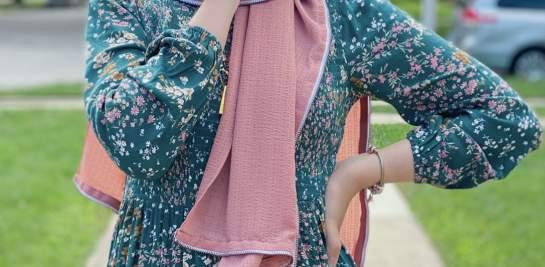
11 minute read
People of Palestine
from Falastin Volume 5 Issue 2
by paccusa
Ahmad Jamhour
People of Palestine is a project by Ahmad Jamhour, PACC’s Content Management Intern, a very active member of the community, and a talented photographer. This August, he launched his photography project “People of Palestine” which highlights Palestinian American youth in the Greater New York Area. The photos can be viewed on his Instagram @peopleofpalestinenj. We will be featuring his project throughout volume five of Falastin.
Photo by Ahmad Jamhour
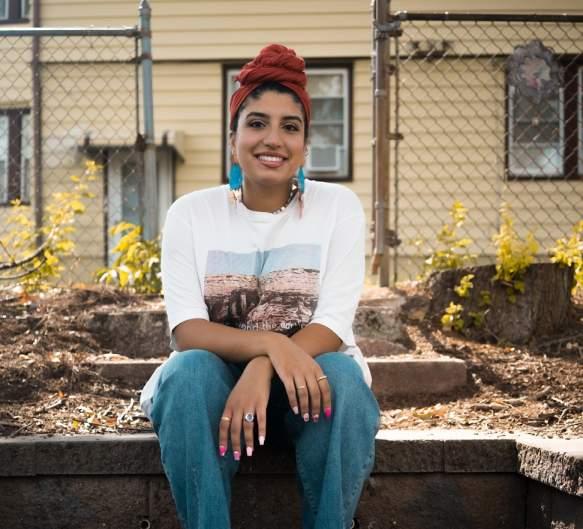
Maryam Abukwaik
“To be a Palestinian in diaspora for me means to be mixed with other stories, other cultures and other narratives. It means being on the outside. My diaspora experience is always being asked for solutions instead of how I feel inside. I want people to see that I am Palestinian. But I am also South Asian. Neither of those identities come first. I am a woman. I am Muslim. I have a blue passport that tells me I belong to the United States but I know that I do not belong here. I know that I am a settler while also having land stripped from me across an ocean. I know that I carry generational trauma but the direct occupation is something I have never experienced for a long period of time. I am complicit in another, older occupation. This is Palestine in diaspora for me. It is entrenched in being oppressed while being an oppressor. It looks like fighting my own people sometimes, being told I have to choose my identity, forced into small boxes of other people‘s minds and it all gets to me. Diaspora has taught me to define myself on my own terms and who I want to be within all my identities. It’s taught me to confront fear by designating it only to God. Diaspora is painful but I realize now I can only thank it for the lessons it’s given me.”
Barry Mahmoud
“Being Palestinian to me means more than just knowing how to do Dabka and having a flag in your Instagram bio. Growing up in a Palestinian household with two falahi parents made me into the person I am. Palestine is more than just a label, it’s a part of me. Living outside of the homeland is supposed to make keeping my identity difficult but, thanks to the strength of this community, it’s hard not to have Palestine on your mind at least 100 times throughout your day. I attended public schools and lived in Clifton my entire life, yet at times I feel I have a stronger connection to my culture than those living abroad. Whenever I visit Beit Anan, my home town, many are surprised by how “the American'' is so immersed in his balad and its people. Even here, my parents often receive compliments over how strong my Arabic is and how great of a dancer I am, and I thank them for giving me the push to ensure that their identity lives on through me and the ones who will come after me.”
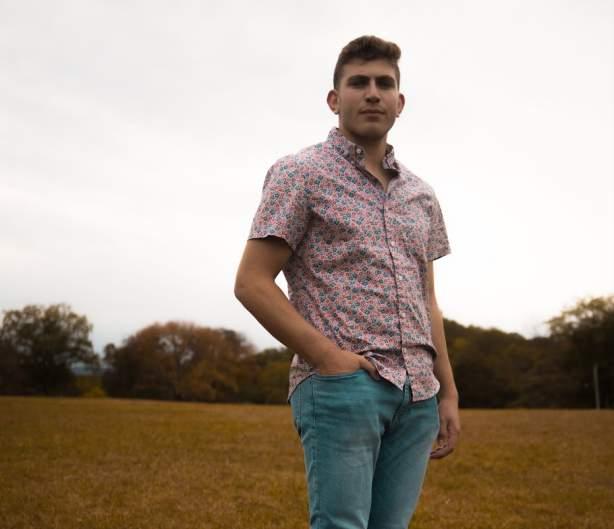
Massara Haseeb on TikTok, Tatreez, and Tradition
Reem Farhat
Like millions of people across the world, artist and student Massara Haseeb’s life was completely turned inside out after the pandemic hit. In early March, Haseeb and her sister were busy preparing for an upcoming trip to Washington D.C. to attend a conference. She was working out her schedule with her internship and making arrangements to make up for the days she’d be gone. Haseeb had been planning the trip for months. Mere days before they were set to leave, she received word that the conference, and subsequently her trip, was canceled due to concerns about the coronavirus.
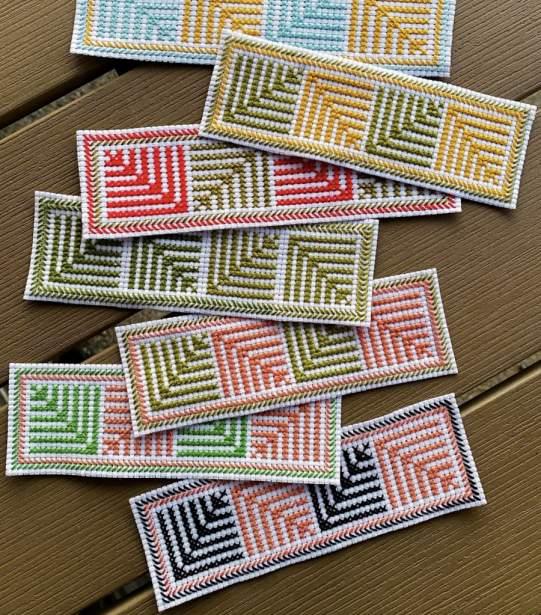
A few days later, she received a phone call from the human resources department at her internship.
“Sorry to let you know, but we’re going to have to let you go,” said the woman on the line, with no greeting or pleasant exchange.
And in one fell swoop, both her internship and spring break plans had been abruptly cancelled, leaving Haseeb unsure about the months to come. However, Haseeb did not let herself wallow for long.
“I feel like I went through the five stages of grief in one hour,” she said.
She decided to use her time to explore her art. This eventually led to her starting her own business, “Massara’s Products,” where she sold handmade bookmarks with a Palestinian twist. She was quickly flooded with orders in a response that went beyond any of her expectations.
Haseeb’s bookmarks are covered with intricate Palestinian embroidery called “tatreez.” Tatreez is a centuries long practice that has been passed down from generation to generation. The patterns include flowers, wheat, and other shapes intricately weaved into fabric. Palestinians across the diaspora have created programs and workshops in order to preserve the practice and teach it to newer generations. Photo provided by Massara Haseeb
According to Joanna Barakat, an artist and photographer who founded “The Tatreez Circle,” an online platform centered around the practice of Palestinian embroidery, tatreez is “far more than a decorative embellishment, but a language of its own.”
“Besides telling the onlooker which village a woman was from, her embroidery revealed many personal characteristics, such as her socioeconomic background, marital status, religion, and spiritual beliefs,” she said.
Nearly every Palestinian woman has a thobe, a traditional hand-embroidered Palestinian dress, in her closet. They’re worn at weddings and community events, and every woman is gifted one when she gets married to wear on her “henna,” a traditional party that takes place the day before Palestinian weddings. These dresses are often matrilineal and passed down from mother to daughter. Making a single one could take months, and historically, the dresses with the most embroidery on them were a


symbol of status because the more tatreez visible on a gown, the more expensive it is.
For Haseeb, this practice keeps her connected to her Palestinian traditions.
“I like to represent my culture as much as possible. Learning tatreez was a really good way to preserve the culture and do something that would help me feel like I was tied back to my roots,” Haseeb said.
By making tatreez bookmarks, Haseeb found a way to make this centuries-long practice fit in one’s pocket.
Haseeb answered the zoom call from her bedroom, where girly tones of grey and light pink graced her covers. She excitedly pulled out her firstever bookmark and one she made more recently to show the difference. Her first one was made over a year ago. It had three large olive green and yellow flowers lined up vertically in the middle, with olive green stitching around the borders. She brought it closer to the camera to show the stitches, which she described as “uneven” and “bulky.”
To any untrained eye, the first bookmark would seem fine, beautiful even. It wasn’t until she brought it side by side to one of her newest bookmarks that the change became tangible. Her newest bookmark, a simple white base with sky blue embroidery shaped in a snowflake-like pattern, is clean with near-perfect stitches. Seeing them side by side, it becomes clear: she is an artisan who has mastered her craft.
Her appreciation for tatreez is a combination of her love for her Palestinian identity and her passion for art. Haseeb was born and raised in the suburbs of Chicago and both her parents come from villages in Palestine. Her father is from a village called Arraba and her mother is from a village called Betunia, which is right outside the city of Ramallah. Her suburb is home to a thriving Palestinian population. Many of the Palestinians there also have ties to Betunia, and there is even a Betunia Cultural Center right outside the city.
According to Mazen Dola, the president of the Palestinian American Club in Bridgeview, Illinois, the Greater Chicago Area is home to over 17,000 Palestinians from Betunia. While many of them were refugees fleeing Palestine after the Nakba in 1948, a mass exodus of Palestinians from their land, most of them came seeking economic opportunity as a result of the Israeli occupation. Growing up in such a robust community meant that Haseeb had no shortage of ties to her identity. She believes connecting to one’s roots is essential.
“Being tied to our roots is so important because if we don’t have our culture and we don’t have our traditions, what do we have? Our land is being taken from us, so it is important for me to represent Palestine in any way that I can,” she said.
Before starting tatreez, Haseeb was making Palestinian-themed art. She started a series where she recreated notable Western paintings with a Palestinian twist. Among those, she recreated “Starry Night” with the skyline of Jerusalem and the “Girl with a Pearl Earring” with a woman dressed in traditional Palestinian clothes.
Haseeb first learned tatreez in December of 2018 while attending the MAS-ICNA convention, an annual national convention in Chicago for Muslim Americans. There, she met Jumana Al-Qawasmi, the founder of Watan, an art studio and shop dedicated to educating about Palestinian heritage and culture. Al-Qawasmi was holding tatreez lessons and gave Haseeb cloth and thread to practice. It was after this convention that Haseeb went home and made her first-ever bookmark.
She briefly thought about making and selling these bookmarks, but pushed the idea aside because of how time consuming it would be. One bookmark takes around four and a half hours to embroider, and, at the time, Haseeb was searching for an internship related to her studies.
Haseeb is in her last semester at the Illinois Institute of Technology. She said that people often assume she’s majoring in something creative like fashion or art. But she chose a different route for herself and decided to major in mechanical engineering, a field she calls “glorified problem-solving.”
According to Haseeb, her background as an artist has influenced her engineering more than the other way around.
“I feel like just having that creative aspect and
being able to think about things a little more creatively gives me an advantage when it comes to designing things,” Haseeb said.
When Haseeb finally secured an internship, it was abruptly ended due to the pandemic. At first, she threw herself into her artwork, utilizing TikTok to help promote her work. She describes the growth she’s had on the platform “insane.” On July 27, she posted a video onto TikTok of a painting she had made to honor George Floyd. Within less than a few days, the video went viral, amassing over 700,000 views in weeks.
“TikTok is like nothing I’ve used before. I’ve been trying to grow on my Instagram since 2014 and I have been using it for six years and I am barely at 2,000 and it took me so long to do that. Here I am on TikTok, I’ve had it for like four or five months, and I’m almost already at 6,000 followers,” she said.
What she loves about the platform is that it offers all users equal opportunity.
“Since TikTok has a ‘following page’ and a ‘for you page’ where you don’t necessarily have to be following people to view their content, I feel like everybody gets a chance. Everyone’s content gets boosted,’’ Haseeb said.
It’s this algorithm that led to her almost immediate success with her embroidery business. Towards the end of March, Haseeb posted a picture of a bookmark she had made for herself on her Instagram, asking if anyone would be interested in purchasing one. She got a few orders, mostly from friends and family. But later, in mid July, she decided to post her bookmarks on Twitter and TikTok to reach more people.
“I thought the Twitter posts would get maybe 30 retweets and I’d get maybe one or two orders. I didn’t expect much. But 300 retweets and 38,000 views on TikTok later, I had almost 40 orders overnight,” she said.
“After working on the 40 orders I had, I learned a lot of things. I learned that the bookmarks are taking me too long to do, I was charging way too little for a handmade item that was taking so long, and there needs to be a more convenient way for me and for customers to be able to order things. That’s when I decided to create a website and I thought that a website would justify me raising my prices because it would feel a little bit more official,” she said.
She offers a wide range of colors and has a five dollar upcharge for each additional color. Each bookmark comes with a handwritten note thanking customers for their purchase and asking them to send images of their bookmarks to her Instagram.
Her customers are made up of young people from the ages 18-25, and to her surprise, come from a wide range of backgrounds. At first, she expected her consumer base to be made up of other Palestinians wanting a piece of their culture. And while that does make up a part of who buys her products, she was shocked to see that a majority of them weren’t Palestinian or even Arab. Many people just wanted to support her small business and had a love for the culture and embroidery.
Haseeb has plans to start selling prints of her artwork on the site, but for now is focusing on tatreez. And when she’s ready to unveil her next product, she plans to promote it to her TikTok followers. Her passion and excitement for the future makes one thing clear: Massara’s Products is just getting started.
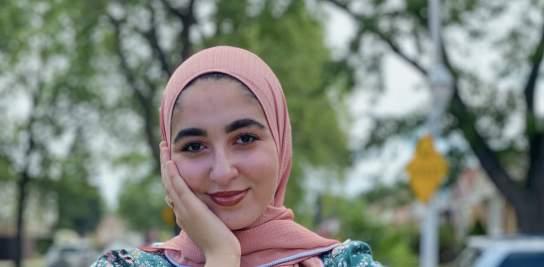
Her immediate thoughts were that she needed to cap her orders, because otherwise she didn’t know when she’d be able to create them all. She also said she’s had to learn a lot about starting her own business as she goes.
